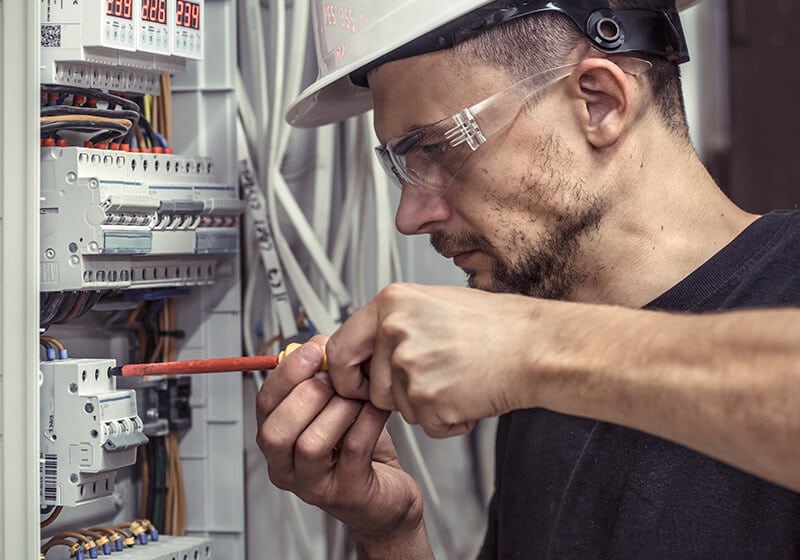
The UK electronics industry plays a major role in the country’s manufacturing sector. Electronics are found in many mass-produced products that we use every day. From smartphones, tablets, and computers to televisions, telecom equipment, and vehicles, not to mention all manner of machinery and gadgets, it might be easier to list devices that don’t incorporate electronics in some fashion. With an annual turnover exceeding £20 billion, the electronics sector is crucial to the British economy.
Electroplating in the electronics sector

Whether you’re part of the industry or not, you can probably guess that the key role of electroplating in the electronics sector is improving the conductivity of connectors, contacts, and circuits. While this is indeed the focus for most plating of electronic components, there are other things to consider, such as protecting those components from being damaged.
These are just some of the ways in which the electronics industry benefits from quality electroplating methods:

Conductivity

As mentioned above, conductivity is key when it comes to plating electronics components. The more conductive the parts, the faster and more efficiently they can transfer digital information via electricity. There are many plating methods that can improve conductivity in your electronic parts, with the decision often coming down to a matter of cost vs. performance. Popular metals for plating electronics include silver, gold, and platinum. All three of these metals are relatively expensive but only need to be applied in minute quantities, given the size of most electronic components. More cost-effective plating options include copper and tin, though they may not be as efficient as those other metals.
Heat resistance

Some electronic components have a tendency to heat up when in use, so it’s important to find a metal finish that will withstand the increase in temperature. We use 99.99% pure silver for a quality electroplating technique that combines excellent heat resistance with impressive conductivity to deliver the best of both worlds for our clients.
An alternative solution, specifically for aluminium surfaces, is Iridite. This passivation technique applies a highly corrosion-resistant coating to the surface that can withstand high temperatures and is also ROHS-compliant coating that makes for a great pre-treatment for paintwork.
Durability

While electronic circuitry might be a marvel of precision engineering, the individual components tend to be delicate, which puts them at risk of breaking. Most manufacturers tackle this problem by protecting the parts with a simple casing, but that isn’t always possible. Fortunately, you can strengthen your electronic components with electroless nickel plating. Not only does this improve durability, but it also makes the parts easier to solder and improves corrosion resistance.
Other sectors we cover


When using metal plating techniques in the electrical and electronic sectors, the two key concerns are precision and conductivity. Often you have to risk one in order to benefit from the other. This is where our expertise comes in, balancing the pros and cons of each metal, in order to deliver electronic components that work the way you need them to.

The automotive industry uses plated components to make their vehicles more efficient at every stage of their manufacture. From gold-plated micro-components in the ECU, to nickel-plated, corrosion-resistant parts, all the way to metal-plated plastic parts to create lightweight bodywork.

The petrochemical industry produces essential items that we use everyday, from plastics, petroleum, and detergents to lubricants, asphalt, propane, and more. Raw materials are subjected to extreme heat and pressure throughout the refining process, so the machinery used to do so requires durable and reliable plating to get the job done.





